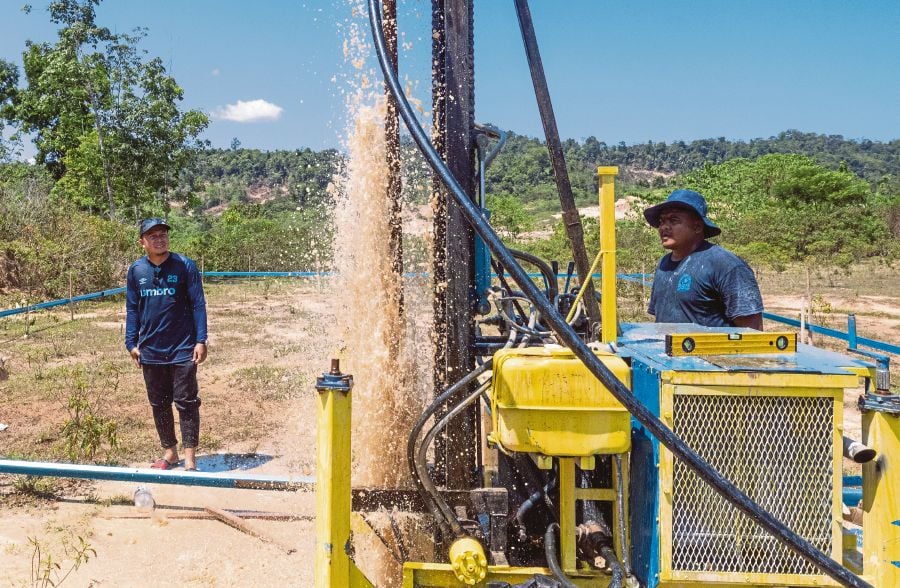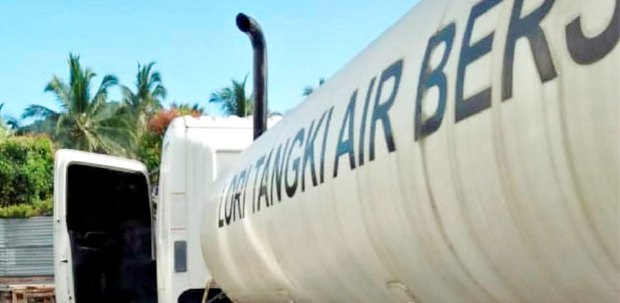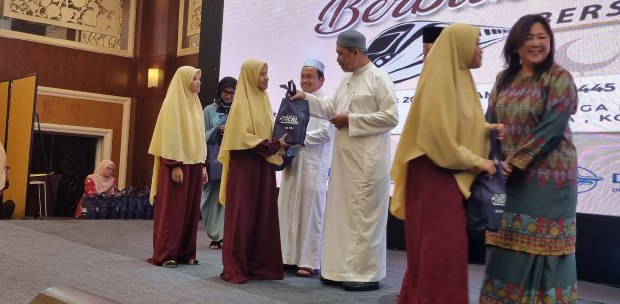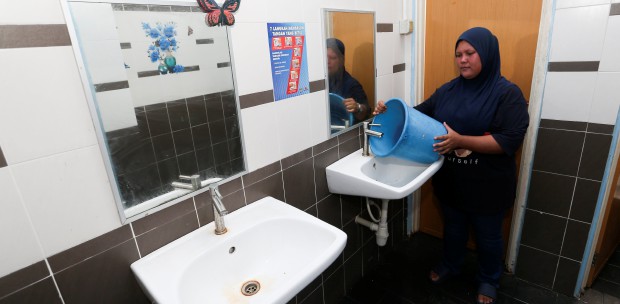Year after year we 'receive' a deluge of floodwater from the monsoons. By right, we should not be complaining about water supply.
Yet, after more than 60 years of independence, we continue to be plagued by water problems, including poor quality, supply disruptions, and even long periods of shortage in some areas.
Clearly, Kelantan and Sabah are very much behind. Kelantan has been battling the problem of poor-quality piped water for decades now.
In Kelantan, many resort to digging their own wells. Literally all the houses in the state have wells.
Most of the government's piped water comes from the ground rather than rivers. In Kelantan, the underground source has high levels of copper and iron, which corrode the distribution pipes quickly.
It is therefore no surprise that there have been many cases of piped water that resembles teh tarik.
Water experts at the Academy of Science Malaysia (ASM) say Kelantan needs a combination of measures to address this problem.
Over the years, ASM has submitted many reports offering ideas to improve the water situation in the country. Kelantan, being under an opposition party for decades, has always been sidelined. But the current government is different.
Despite political differences, the prime minister recently announced that the water problems in Kelantan and Sabah would be resolved this year.
There was even mention of investing billions, if need be. Going by past experience, money is not the only determinant of success in development projects. Good governance is equally, if not more, important.
Experts have suggested a number of measures. Water conservation is one.
Public awareness campaigns should be carried out on fixing leaks, using water-saving appliances and practising responsible use, including the adoption of water-efficient technologies and practices in agriculture, industry and households.
Not to mention encouraging the use of rainwater-harvesting systems for gardening and cleaning. This is incomplete without infrastructure development and maintenance.
Here, we are talking about upgrading and expanding water infrastructure, including reservoirs, treatment plants and distribution networks.
Technologies such as smart water meters and remote monitoring systems can help improve water management and detect leaks promptly.
Kelantan needs to explore alternative water sources such as surface water from rivers and lakes.
Investment should go into developing sustainable water supply projects, including reservoirs and dams.
There has even been a suggestion to position dams at river mouths to hold back fresh water before it flows into the sea.
Implementing reforestation and conservation programmes in critical watershed areas can protect them and improve water quality.
Sustainable land management practices should be promoted, including agroforestry and soil erosion control measures, to prevent sedimentation and pollution of water sources.
The state should collaborate with stakeholders, such as local communities and non-governmental organisations, to establish watershed management plans.
Another measure involves integrated water resource management. They need to develop comprehensive plans that consider the needs of different sectors,
including agriculture and industry.
Water governance structures and institutions should be established to coordinate water management activities among agencies and stakeholders.
In addition, there is a need to conduct regular monitoring and assessment of water resources
to ensure sustainable management and planning for future demand.
An important factor is collaboration between government agencies, communities and other stakeholders in implementing the recommended solutions.
Clearly, money alone will not resolve the water woes in Kelantan.
Unless the suggested measures are effectively implemented, the state will continue to suffer from chronic water problems.
* The writer is a professor at the Tan Sri Omar Centre for STI Policy, UCSI University





